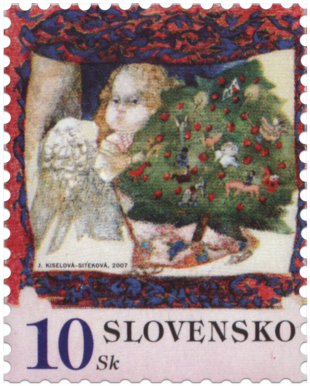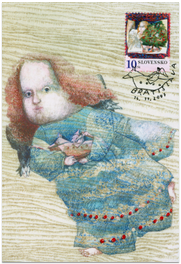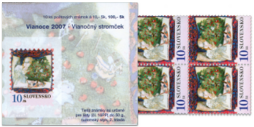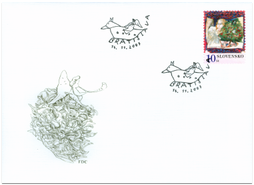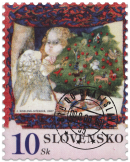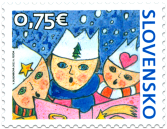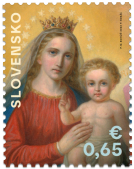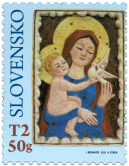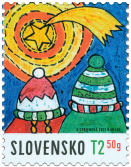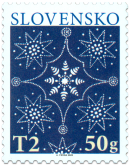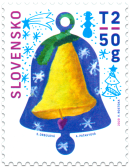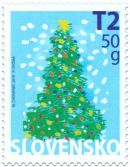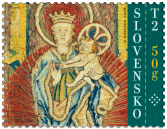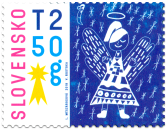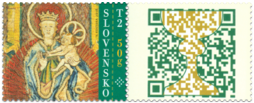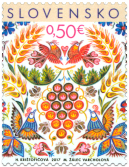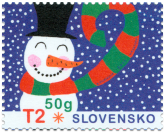This product is not for sale
This product is part of the following products
411 Date of issue
14.11.2007 Face value
10.00 Sk
© Slovak Post, 2007 Green decorated trees as a symbol of Christmas appeared in the territory of Slovakia at the beginning of the 19th century. The tradition derived from Germany and Austria and initially became part of Christmas season solely in bourgeois families. Only at the end of the 19th century did the tree also start to become part of peasant culture. In village households it gradually replaced the Christmas cribs and straw decorations that had originally constituted the Christmas decorations of such houses. Later, trees became common in Northern and Eastern Slovakia, replacing larger straw objects, which were hung over the dining table as a symbol of Christmas. The Christmas tree was also initially hung over the table, subsequently placed on the table, and finally, as in towns, put in a stand. Originally, the tree was decorated with nuts, apples, paper and straw decorations, gingerbread, and pictures. With time, glass and colourful Christmas decorations, lights and other ornaments replaced traditional decorations. Towards the end of the 20th century the decoration of Christmas trees started to follow fashion trends in terms of colours and richness of decoration. At the beginning of the 20th century, Christmas presents started to be put beneath the Christmas tree. In folk culture greenery symbolised new life, rebirth, freshness and health. The green Christmas tree has not acquired this meaning due to its urban culture origins. However, the tree creates a special atmosphere and is a distinct aesthetic part of the Christmas season.
Show less© 2024 POFIS - Postal philatelic service. All rights reserved

